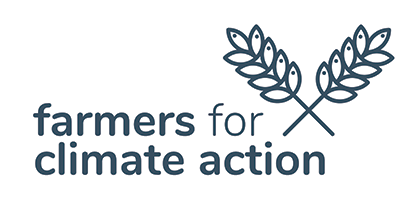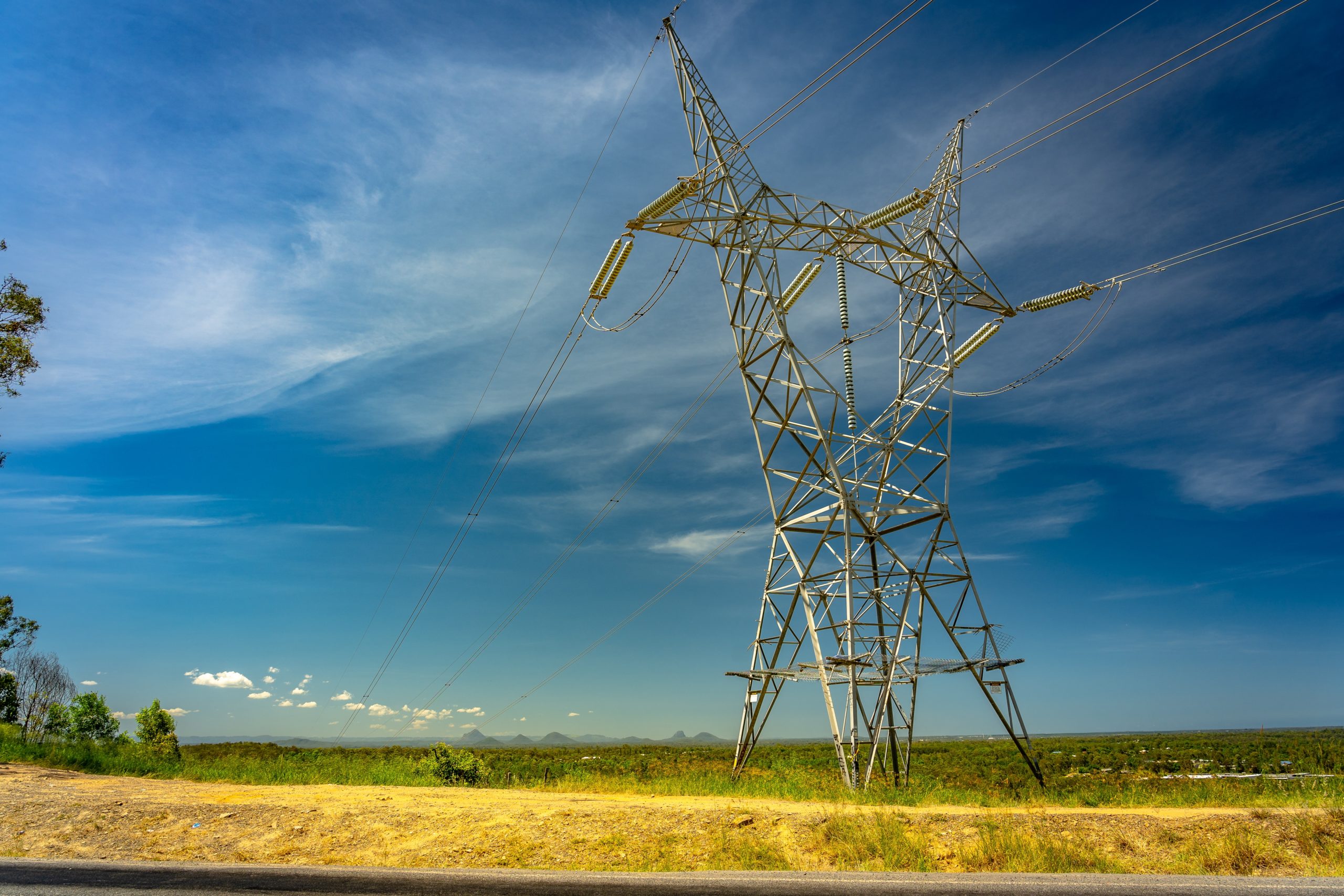28 September 2023
Farmers for Climate Action Submission:
Enhancing community engagement in transmission building rule
Farmers for Climate Action thank the Australian Energy Market Commission (AEMC) for the opportunity to provide a submission related to the proposed rule change to enhance transmission network service providers’ (TNSPs) engagement with communities to build and maintain social licence.
About Farmers for Climate Action
Farmers for Climate Action is a movement of farmers, agricultural leaders and rural Australians working to have Australia adopt strong climate policies by growing the number of farmers, farming communities and elected representatives championing ambitious action.
We represent more than 8,000 farmers across Australia, and our supporter base includes more than 45,000 Australians committed to deep emissions reductions across the economy this decade.
Background
Farmers for Climate Action fully support the rapid deployment of renewables. This roll out is key to achieving the deep emissions reductions we need this decade to limit climate change impacts, provide energy security and protect the future of farms and food security. A recent Farmers for Climate Action survey (September 2023) showed that 92% of respondents are supportive of Australia’s acceleration to more renewable energy in our national grid.
Notwithstanding our support, Farmers for Climate Action has significant concerns about the level and quality of consultation by TNSPs with landholders. Numerous farmers in our network have shared their negative experience with TNSPs. There is a long road ahead to restore and build trust and collaborative models for coexistence, despite the urgent need for transmission in the regions.
The most significant risk factor to achieving Australia’s renewable energy targets is the lack of regional transmission infrastructure to support large scale renewable energy generation. This challenge is exacerbated by:
- The lack of adequate consultation with regional communities and affected landholders
- An absence of national or state policies or guidelines to create an equitable framework that supports impacted businesses and community needs; and
- The fact that regional communities can not access the clean energy their communities are hosting.
This combination of factors has created an absence of social license and, in places, resistance to large scale renewable developments in farming communities. Within Farmers for Climate Action’s network, which we acknowledge is biased towards farmers who want the shift to a renewable electricity grid to succeed, there exists significant push back to hosting transmission infrastructure. A September 2023 survey of farmers across our network showed 29% were against hosting transmission, 49% said it would depend, while just 23% said yes to hosting transmission on their properties. The survey also shows that 64% believe their community is either very or somewhat opposed to transmission projects.
Importantly, many farmers active in this space are experiencing business limitations due to renewables projects hosted by nearby farms. The impact of overhead transmission lines which require mandated clearance from machinery deems some of their property unable to be farmed as centre pivots or tractors cannot operate under these lines. This creates a loss of agricultural land use by neighbouring farms which is not currently addressed in consultation or legislative processes.
Farmers for Climate Action strongly welcome the AEMC’s proposed draft rule to regulate the requirement for TNSPs to consult with those who are directly and indirectly impacted by the deployment of the transmission network.
The rule clearly sets out the requirements for TNSPs, although as outlined below could fall short by not clearly articulating who is to be engaged or providing advice on best practice engagement.
While best practice advice falls outside of the rule, Farmers for Climate Action encourage the AEMC to fund the development of a Model Code of Conduct to provide guidance to TNSPs on best practice engagement in farming communities. Farmers for Climate Action would welcome the opportunity to discuss the development of a Model Code of Conduct which we believe is urgently needed to rebuild trust in regional communities for transmission infrastructure.
‘Interested party’ definition
Farmers for Climate Action supports the draft rule, however would like clarification that is clear on what an “interested party” is. This is currently noted in:
[5] 5.15. 1 For the purpose of the regulatory investment test for transmission for an actionable ISP project, an interested party includes stakeholders who are reasonably expected to be affected by the development of the actionable ISP project (including local landowners, local council, local community members and traditional owners)
The term ‘local landowners’ could be implied as solely those where transmission infrastructure will be on their properties. This could be interpreted as not including neighbouring properties, who are impacted visually, during construction and potentially ongoing in a way that will cause loss of income and demand land use changes.
Farmers for Climate Action proposes an amendment to [5] 5.15. 1, changes underlined.
For the purpose of the regulatory investment test for transmission for an actionable ISP project, an interested party includes stakeholders who are reasonably expected to be affected by the development of the actionable ISP project (including local landowners where projects are planned to be deployed on their land and neighboring properties, local council, local community members and traditional owners)
Key considerations beyond the rule
While beyond the scope of feedback to the proposed draft rule, Farmers for Climate Action would like to raise additional issues for consideration by the AEMC:
Best Practice Community Engagement
The rule establishes the need to engage, but engagement to date would suggest that TNSPs do not have the required background in farming communities for meaningful engagement.
As outlined above, Farmers for Climate Action strongly believes there is a need to develop a Model Code of Conduct (MCC) for TNSP engagement with landholders.
The MCC would develop best practice principles for the integration of renewables and transmission alongside modern farming practices. Critically these principles should be developed by farmers, for farmers and include genuine recompense and options to mitigate unintended negative consequences where they are demonstrated to exist.
Farmers rarely engage in traditional government consultation processes due to a lack of trust and consultation processes are often unsuited to farming communities. With appropriate support, Farmers for Climate Action could lead engagement and embark on a swift and in-depth listening campaign, to codesign a fit for purpose MCC. We consider an MCC that addresses farmers’ and regional communities’ genuine concerns will remove the key barrier to regional renewable and transmission infrastructure roll-outs. In turn, we consider farmer support for renewables will grow exponentially.
Farmers for Climate Action would welcome the opportunity to discuss the development of a Model Code of Conduct.
Benefit Sharing
Every effort should be put in place to encourage TNSPs to explore improved benefit-sharing arrangements for transmission hosts and communities, including higher annual payments to hosts, payments to impacted neighbours, and long-term funding for community benefit programs.
To enable the rapid deployment of transmission lines, it is clear that the wider regional community needs to be consulted and need to feel the positive impact of real community benefits, as well as the landholders directly impacted.
The Farmers for Climate Action renewables on farm survey (September 2023) asked farmers what would lead to their communities being more supportive of hosting transmission infrastructure. The responses showed:
- 55% support for putting transmission infrastructure underground in certain locations
- 44% support for more extensive and genuine community consultation around transmission projects
- 36% support for funding for significant community benefit programs in communities that host the infrastructure (i.e. enabling the broader community to share the financial benefits of the towers)
- 35% support for payments to impacted neighbours (i.e. those on adjoining properties to the transmission infrastructure)
- 30% support for direct financial incentives to individuals in the locality of the infrastructure, e.g. cheaper or free energy bills
Farmers for Climate Action advocates for transmission companies to apply electricity discounts to affected landholders and communities. An example of what this could look like is a 25% energy price discount for postcodes with infrastructure projects for the life of the project.
Inequity in farm households’ ability to supply power
The approach of Regional Energy Zones (REZs) and the current approach to grid management, does not enable farm households to supply energy to the grid for projects bigger than 5 megawatts, without significant investment for connectors.
Australia has the world’s highest per-capita solar energy penetration, with almost one in three homes hosting PV panels. However, there is a limit to metropolitan expansion for renewable energy generation. In contrast, farming households, who manage 55% of Australia’s land mass, have the capacity to generate renewable energy at scale.
Metropolitan residents have the ability to feed power directly into existing grid infrastructure. Rural residents, who generally have a one-power line system, are unable to input excess power generated. As noted above, rural households have significant land that could be used for renewable energy, but strong opposition to new transmission.
While urban residents have the ability to generate income from their roof-top solar, farm residents should be provided the same opportunity from their rooftop power along with other power they are able to generate on their properties. A simple, practical, and cost-effective solution would be to add a second powerline to properties and subsidise connectors required for projects larger than 5 megawatts. This is recognised in a recent consultation process of 50 regional energy customer leaders by energy distributor, Powercor, which found, “Addressing poor reliability, power quality and limited capacity was perceived as enabling communities to participate in the clean energy transition.” **
Conclusion
Farmers for Climate Action is supportive in principle with the proposed rule to regulate the requirement for TNSPs to consult with those that are directly and indirectly impacted by the deployment of the transmission network.
As outlined, clarification of interested parties to include both landholders with proposed infrastructure on their land and surrounding properties should be included to provide certainty for genuine engagement to those that are reasonably likely to be impacted.
While beyond the scope of the rule, Farmers for Climate Action urge the AEMC to pursue as a matter of priority the development of a Model Code of Conduct for TNSPs in partnership with impacted farming communities. Farmers for Climate Action welcome the opportunity to discuss this in more detail.
Natalie Collard
CEO, Farmers for Climate Action
Email: natalie@farmersforclimateaction.org.au
Phone: 1800 491 633
Web: farmersforclimateaction.org.au
Post: Suite 327 M Centre, 11 Palmerston Lane, Manuka ACT 2603
__
**‘Deep and Narrow Engagement: Rural and Regional Summit’ produced for Powercor, p.16, June 2023






